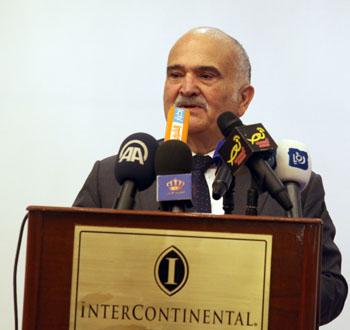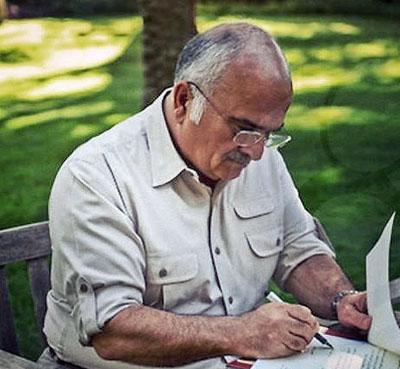You are here
Prince Hassan says now is time to spread legal empowerment in Arab region
By Hana Namrouqa - Jun 11,2014 - Last updated at Jun 11,2014

AMMAN — Any post-2015 agenda for the Arab region, and regions across the world, must combine economic, social and environmental sustainability with human dignity as their primary focus, HRH Prince Hassan said on Wednesday.
Calling for including access to justice in the next round of the UN’s development goals, Prince Hassan noted that “by excluding access to justice from the development agenda, we cannot truly transform the lives of people in a qualitative way.”
The West Asia-North Africa (WANA) region cannot afford another 15 years without justice being at the fore of the regional agenda, he said at the opening of the 2014 WANA Forum on Legal Empowerment.
“No matter where we are, we are striving for benefits that can be enjoyed by all. To promote opportunity. To live in dignity. To enjoy the peace that comes with security,” the prince added.
Prince Hassan, chairman of the WANA Forum, underscored that legal empowerment has now become mainstreamed into the work of global agencies and foundations, and it has become a reality around the world, but not in the WANA region.
“We must constantly remind ourselves that the consequences of our short-term actions must align with the long-term objectives of legal empowerment for all people,” he stressed.
Prince Hassan proposed five points of action needed to lay a solid foundation for legal empowerment in the Arab region.
“First, we need to look critically at why legal empowerment has not caught on here as it has done in many other parts of the world. My suspicion, to be blunt, is that we are still confronting the ‘why do we care’ question.”
Second, is the need to find realistic strategies to move beyond the political mindset that currently blights progress towards legal empowerment.
“Legal empowerment cannot become equated with ‘a language of revolution’… instead, legal empowerment must be promoted as a tool of conflict resistance and resilience,” Prince Hassan stressed.
Third, civil society should be involved in legal empowerment, as it is too large of a problem to be left to governments alone, he said.
“Fourth, we need to prioritise the development of a regional knowledge base capable of supporting the level of innovation required to meet these challenges.”
The prince also called for building a culture that supports legal empowerment, as it “cannot exist unless people believe that the law can work for them. Without this belief, a legally literate population, access to legal aid and high functioning institutions, are missed opportunities.”
Prince Hassan concluded his address by making an ethical call for justice, noting that legal empowerment can no longer remain on the fringe of debates on poverty alleviation, legal and judicial reform.
“My region cannot wait. Now is the time to act,” he underlined.
The sixth WANA Forum is focusing on the legal empowerment of the poorest of the poor and the most marginalised sections of society, according to organisers, who said that participants will explore how legal empowerment can be used as a platform for resilience, innovation and growth.
Yohei Sasakawa, chairman of the Nippon Foundation, a nonprofit philanthropic organisation that supports the WANA Forum, said billions of people around the world live outside the protection of the law, and the WANA region is no exception.
“Such exclusions from the rule of law can only have detrimental effects on factors such as economic growth and human development and deter the path to realising an inclusive society,” Sasakawa added.
Academics, policy makers and religious officials from across the Arab world are participating in the two-day forum to examine how governments can work together to enable access to justice for people that have no recourse to legal mechanisms for their most fundamental rights, according to organisers.
Related Articles
The sixth annual West Asia – North Africa (WANA) Forum will be held in Amman on June 11-12.
HRH Prince Hassan today celebrates his 67th birthday.
AMMAN — The West Asia-North Africa Institute (WANA), located in Amman and operating under the guidance of HRH Prince Hassan, has been select

















